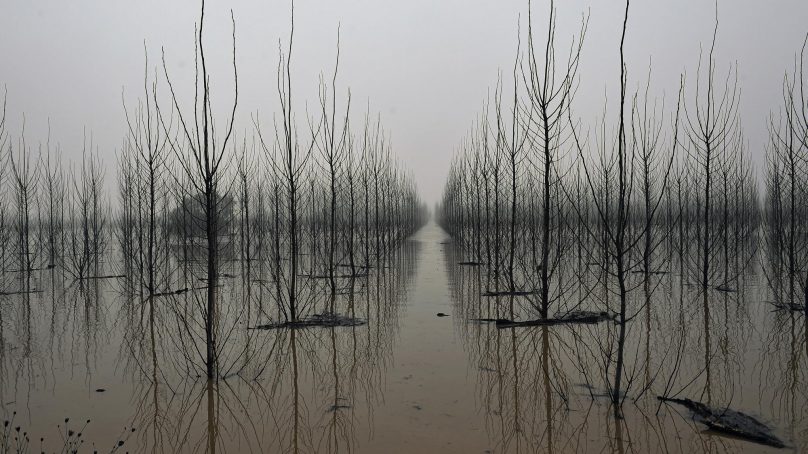
Deadly with extreme weather now, climate change is about to get so much worse. It is likely going to make the world sicker, hungrier, poorer, gloomier and way more dangerous in the next 18 years with an “unavoidable” increase in risks, a new United Nations science report says.
The UN Intergovernmental Panel on Climate Change report said on Monday that sif human-caused global warming isn’t limited to just another couple tenths of a degree, an Earth now struck regularly by deadly heat, fires, floods and drought in future decades will degrade in 127 ways with some being “potentially irreversible.”
“The cumulative scientific evidence is unequivocal: Climate change is a threat to human well-being and planetary health,” says the major report designed to guide world leaders in their efforts to curb climate change. Delaying cuts in heat-trapping carbon emissions and waiting on adapting to warming’s impacts, it warns, “will miss a brief and rapidly closing window of opportunity to secure a liveable and sustainable future for all.”
Today’s children who may still be alive in the year 2100 are going to experience four times more climate extremes than they do now even with only a few more tenths of a degree of warming over today’s heat. But if temperatures increase nearly two more degrees Celsius from now (3.4 degrees Fahrenheit) they would feel five times the floods, storms, drought and heat waves, according to the collection of scientists at the IPCC.
Already at least 3.3 billion people’s daily lives “are highly vulnerable to climate change” and 15 times more likely to die from extreme weather, the report says. Large numbers of people are being displaced by worsening weather extremes. And the world’s poor are being hit by far the hardest, it says.
More people are going to die each year from heat waves, diseases, extreme weather, air pollution and starvation because of global warming, the report says. Just how many people die depends on how much heat-trapping gas from the burning of coal, oil and natural gas gets spewed into the air and how the world adapts to an ever-hotter world, scientists say.
“Climate change is killing people,” said co-author Helen Adams of King’s College London. “Yes, things are bad, but actually the future depends on us, not the climate.”
With every tenth of a degree of warming, many more people die from heat stress, heart and lung problems from heat and air pollution, infectious diseases, illnesses from mosquitoes and starvation, the authors say.
The report lists mounting dangers to people, plants, animals, ecosystems and economies, with people at risk in the millions and billions and potential damages in the trillions of dollars. The report highlights people being displaced from homes, places becoming uninhabitable, the number of species dwindling, coral disappearing, ice shrinking and rising and increasingly oxygen-depleted and acidic oceans.
Some of these risks can still be prevented or lessened with prompt action.
“Today’s IPCC report is an atlas of human suffering and a damning indictment of failed climate leadership,” United Nations Secretary-General Antonio Guterres said in a statement. “With fact upon fact, this report reveals how people and the planet are getting clobbered by climate change.”
The panel of more than 200 scientists puts out a series of these massive reports every five to seven years, with this one, the second of the series, devoted to how climate change affects people and the planet. Last August the science panel published a report on the latest climate science and projections for future warming, branded “code red” by the United Nations.
Climate scientist Katharine Hayhoe of The Nature Conservancy, who wasn’t part of the latest report, calls it the “Your House is on Fire” report.
“There’s real existential threats,” report co-chair Debra Roberts of South Africa told The Associated Press.
Since the last version of this impacts panel’s report in 2014, “all the risks are coming at us faster than we thought before,” said report co-author Maarten van Aalst, a climate scientist for the International Federation of Red Cross and Red Crescent Societies, mentioning floods, droughts and storms. “More of it will get really bad much sooner than we thought before.”
- An AP report











